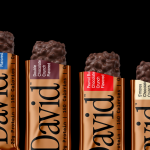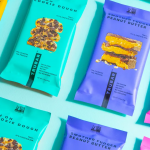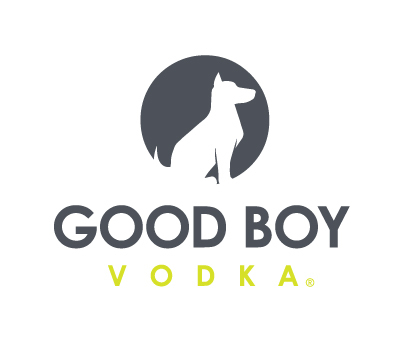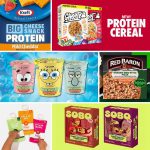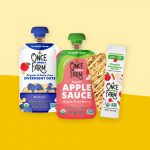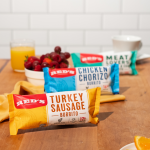The Checkout: Mondelēz Talks M&A Strategy, Hu Acquisition on Q1 Call; Biden Signs FASTER Act Into Law
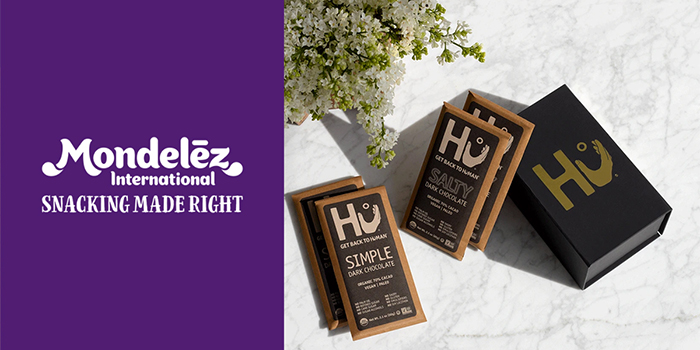
Mondelēz Discusses M&A Strategy, Hu Acquisition During Q1 Earnings Call
Mondelēz International this week reported that the company is “emerging from the COVID-19 pandemic stronger,” in its first quarter earnings call. The company saw net revenues increase 7.9% this quarter, with growth in biscuits (3.4%) and chocolate (10.3%). Gum and candy saw a 16.4% sales decline as on-the-go purchasing behaviors have yet to return to pre-pandemic levels, though CEO Dirk Van de Put said the company is expecting a “gradual recovery” for this category.
The company is also “seizing large opportunities” in the e-commerce channel, as business grew 77% vs. the prior year, now accounting for 6% of its revenue.
Providing an update on the company’s acquisition of chocolate maker Hu earlier this year, Van de Put said it plans to “build up the brand” as it sees a “clear opportunity” to grow Hu’s retail presence, which is strong in natural retailers like Whole Foods but has yet to make inroads in conventional retailers. Earlier this year Hu added it’s first sweet snack: bite-sized, grain-free cookies.The addition of Hu, like Tate’s and Perfect Snacks in previous years, has helped the company in charting a “new growth path” that helps it enter new and adjacent categories, he added
Discussing the company’s M&A strategy, Van de Put said Mondelēz is focused on brands within snacking, but open to deals with small and large sized companies, as well as both U.S.-based and international companies.
“If there would be a larger acquisition that would provide us the opportunity to get bigger in snacking and/or get an accelerated growth rate, we’re certainly open to it. But it’s just very difficult to find and we’re hesitant,” he said. “We would probably be open to get into other areas of snacking, but we are hesitant to get into other food categories, which are showing less growth. And so that makes it much more difficult to find the right sizable acquisitions.”
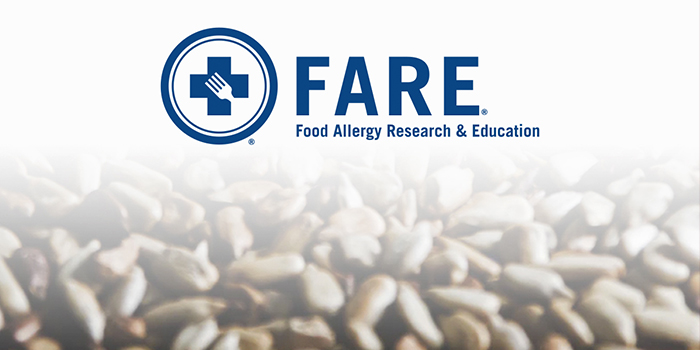
President Biden Signs FASTER Act Into Law, Making Sesame 9th Major Food Allergen
President Biden signed the Food Allergy Safety, Treatment, Education, and Research (FASTER) Act of 2021 into law last Friday evening. The law makes sesame the ninth major food allergen, requiring it to be labeled on packaged foods beginning January 1, 2023, and also prioritizes food allergy research and prevention.
This is the first time that a new allergen has been added to the Food Allergen Labeling and Consumer Protection Act of 2004, joining milk, eggs, fish, shellfish, tree nuts, peanuts, wheat and soybeans, which were all included in the original legislation.
The FASTER Act also requires the Secretary of Health and Human Services to submit a report no later than 18 months after its enactment identifying opportunities for food allergy prevention, treatment and cures, and establish a “timely, transparent, and evidence-based” regulatory process and framework for modifying the list of major food allergens.
The bill, which garnered bipartisan support with co-sponsors including Senator Tim Scott (R-SC), Senator Chris Murphy (D-CT), Representative Doris Matsui (D-CA-06), and Representative Patrick McHenry (R-NC-10), was introduced earlier this year and passed the Senate on March 3 and the House of Representatives on April 14.
According to Food Allergy Research & Education group FARE, approximately 1.6 million Americans are allergic to sesame, which is often labeled as “natural flavors” and “natural spices” on food packaging. FARE CEO Lisa Gable called the law a “major victory for the entire food allergy community across the nation.”
“I cannot thank President Biden enough, along with the thousands of food allergy champions who made today a reality,” she said. “It was because of our champions and advocates that the FASTER Act was introduced, passed and signed into law during President Biden’s first 100 days in office.”

Hershey Talks Post-Pandemic Shopping Behaviors on Q1 Earnings Call
In its first quarter earnings call yesterday, Hershey reported 12.7% net sales growth, securing sales increases across confection and snacking, categories that fit into the “at-home lifestyle” families have embraced during the pandemic, CEO Michele Buck said.
While the majority of confection sales continue to occur in-store, ecommerce candy sales have also picked up, Buck said, with online purchases accounting for 15% of Hershey’s confection sales in Q1, up 60% from last year. Buck said the company has made supply chain investments to help the company “efficiently and at a better margin” develop pack sizes optimized for ecommerce sales.
Hershey’s Amplify business saw 9% sales growth, driven by SkinnyPop, which notched 14.6% growth as it continues to gain share in the ready-to-eat popcorn category. Pirate’s Booty sales took a hit in Q1, though Buck said the company expects sales to improve as students return to in-person schooling. ONE’s business continued to be impacted, she added, as on-the-go bar sales have yet to return to pre-pandemic levels, but the company anticipates these sales picking up throughout the year.
Buck said the company is currently preparing for changing consumer behavior post-pandemic, particularly the return of in-person schooling and in-store shopping. As these rebound, Buck said the company will focus on confection, better-for-you snack packs and single-serve products, along with non-traditional channels of distribution and its foodservice business.
“As we enter the recovery phase of COVID, we know the journey will not be linear,” she said. “We are closely monitoring consumer trends and pivoting quickly to adjust as the environment changes.”
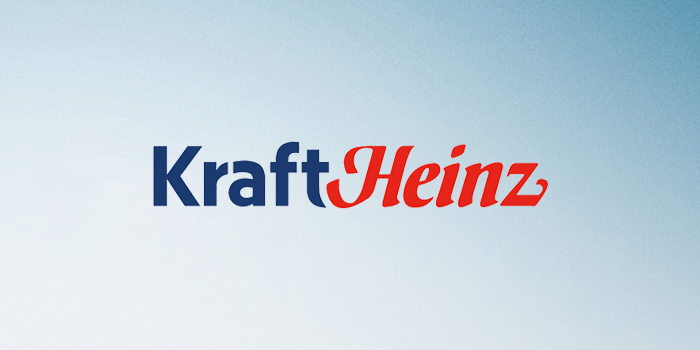
Kraft Heinz Reports “Better Than Expected” Q1
In its first quarter 2021 earnings call today, Kraft Heinz shared “better than expected” results, according to CEO Miguel Patricio, which included 3.9% net sales growth. The company has also sustained its household penetration reached in Q1 of 2020 which largely resulted as a result of panic buying during the onset of the pandemic.
“We are getting much closer to our consumers. We are strengthening our brands. We are improving execution. And our people are motivated,” Carlos Abrams-Rivera, U.S. Zone President, said.
Abrams-Rivera also said the company’s innovation agenda is “beginning to take hold,” with new products including Just Crack an Egg Omelet Rounds strengthening the company’s presence in the breakfast category as the company anticipates the breakfast-at-home trend to continue beyond the pandemic.
Kraft Heinz has seen continued momentum in ecommerce, with household penetration at 15.5%, up 7.9% from pre-COVID, which the company noted is a more significant gain than competitors such as General Mills, Conagra, Nestle and Mondelez. These gains have helped the company make “progress against our goal to be accessible and available to all families, everywhere,” Abrams-Rivera said.


